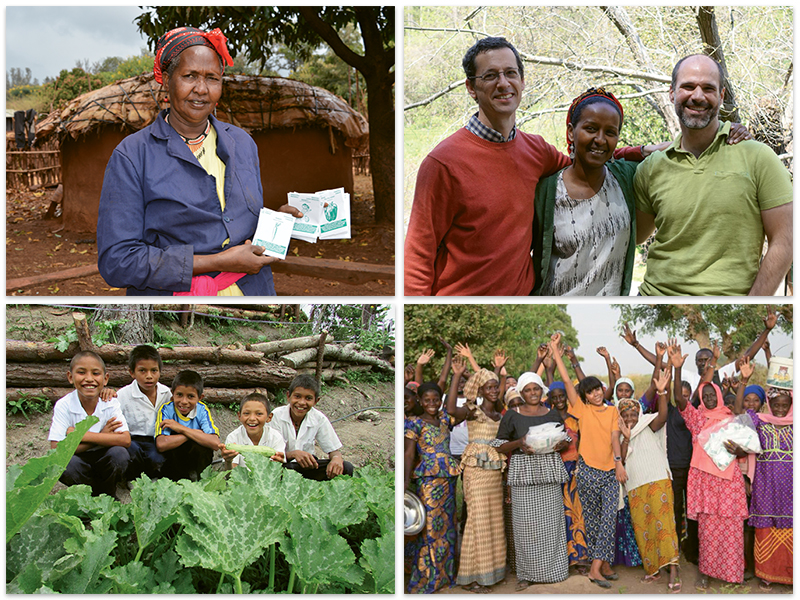Planting Hope
Planting Hope: Seed Programs International celebrates 20 years of humanitarian aid

Seed Programs International works with 25 partner countries, including people in Kenya (top left), Gambia (bottom right), and Honduras (bottom left); (top right) SPI President Peter Marks with team members Naima Dido and Greg Bonin
Although relatively little-known locally, Asheville-based nonprofit Seed Programs International has been working for 20 years on worldwide humanitarian efforts to reduce chronic poverty and malnutrition while promoting youth engagement and women’s empowerment. It accomplishes this, as the name implies, with seeds. Last year, SPI supported gardens for 20,000 families in 25 partner countries, including Nigeria and Haiti. The organization, however, is not simply a seed distributor—it also shares gardening resources and equips local leaders with training and support.
SPI doesn’t directly lift people from hunger and poverty. Rather, local leaders, program participants, and other residents in the communities lift themselves. “A huge part of our philosophy is that local people know best about the context and conditions where they’re working,” says SPI President Peter Marks, who came on board in 2012 when SPI moved from Charlotte to Asheville.
As far as sourcing seeds goes, SPI repurposes top-quality, nonGMO vegetable seed that would otherwise go to waste. More than 90 percent of the seeds are donated to SPI, and in those few instances when the group does buy seed, it is because a particular variety is in short supply globally.
The SPI team works with Peace Corps volunteers, faith-based charities, and international nonprofits like Habitat for Humanity, as well as small overseas organizations. Providing skills that can be useful for a lifetime is key to SPI’s long-term outlook. If it helps an agronomist in Haiti lead a workshop on how to improve soil, and representatives from eight villages attend, then those people can become experts to support others.
In addition to agricultural yields, gardens foster connection. “A garden creates a space that is not threatening to the community, where we can initiate conversations,” says Naima Dido, SPI’s program director. “The garden also brings women together. It puts them in the same space, where they can be a support system for each other.”
One recent project started when members of a women-led textile cooperative in Guatemala wanted to start gardening. One participant said, “As women, we didn’t know how to plant seeds or do anything related to agriculture, however, this project gave us the opportunity to learn. … We were all laughing and having a great time when we were planting the seeds.”
“You can’t eat seeds; you still have to work to make them be what they are,” Dido notes. “We are putting that trust in their hands, that they can help themselves.”
Seed Programs International
For more information and to donate, visit seedprograms.org. A new Global Gardeners program is a way for locals to grow gardens in solidarity with people SPI serves overseas.